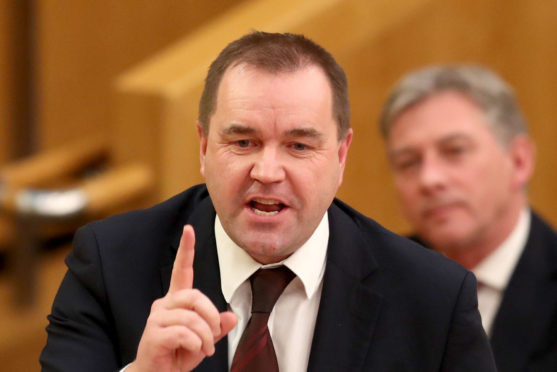
Neil Findlay has resigned from his frontbench role as Scottish Labour’s Business Manager, Party Liaison and spokesperson on Constitutional Relations.
Findlay, who has been the MSP for Lothian since 2011, has also announced that he’ll leave the Scottish Parliament at the 2021 Holyrood elections.
Speaking of his decision, Mr Findlay said: “It has been an enormous privilege to serve the Scottish Labour Party, first as a councillor and then a Member of the Scottish Parliament.
“I am proud of the work I have done representing my constituents in the Lothian region and of the campaigns I have led in Parliament most notably to retain the Children’s ward at St John’s hospital, supporting the blacklisted construction workers, the mesh campaign, miners’ justice and support for the victims of undercover policing amongst many others.
“I will continue to work hard and diligently on these and other issues right up until I leave parliament.”
Neil Findlay letter to Richard Leonard announcing plans to quit pic.twitter.com/Er9iL7t7lP
— Nick Eardley (@nickeardleybbc) May 28, 2019
In his letter of resignation to Scottish Labour leader Richard Leonar, Mr Findlay said that he had been considering his decision for the last six months having discussed it with his family, staff and close friends.
He added: “Whilst I will leave the front bench, I will continue to promote a socialist agenda for change inside and outside of parliament.
“By the time the Scottish election comes I will have spent 18 years as an elected politician – it is now time for a new generation of socialists to come through to help you rebuild the Scottish Labour Party.”
Mr Findlay set out a number of strategies for the party going forward, in the aftermath of a disastrous European elections.
He called on the party to strive to deliver new powers to the Scottish Parliament to address inequality and poverty levels, retain links across the UK and oppose austerity.
He also said the party’s headquarters should move to Edinburgh, to help “rebuild our party machine.”
A close ally of Jeremy Corbyn, Mr Findlay called for Scottish Labour to work more closely with trade unions to “deliver a progressive agenda for working people” and for an end to the “eternal, internal fighting within our party and the toxic culture of leaks and briefings that come from some within the Scottish and UK parliamentary groups.”
He added: “This self-inflicted harm has to stop – our party members and our leadership teams deserve so much better.
“Scottish Labour will win again when the focus is on the public not the internal politics of the parliamentary group.”
Responding Mr Findlay’s decision, Mr Leonard said: “I am very sorry that you will not be able to be a member of the Scottish Labour frontbench but I also know from our conversations that this is the right decision for you personally and in that you have my full support.
“Your service as an MSP has been outstanding. You have served the communities you represent with dedication and on the basis of your strongly-held principles. Your campaigns, such as the mesh campaign, the pressure for an inquiry into the policing of the miners’ strike, and blacklisted construction workers are a model of what being a member of this Parliament should be about.
“Through this work you have demonstrated the important lesson that for socialists the purpose of the Parliament is not to be found in the daily grind of procedural arguments, but instead in how the Parliament relates to the lives of working class people in this country.”

Enjoy the convenience of having The Sunday Post delivered as a digital ePaper straight to your smartphone, tablet or computer.
Subscribe for only £5.49 a month and enjoy all the benefits of the printed paper as a digital replica.
Subscribe